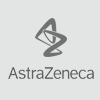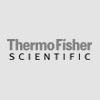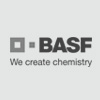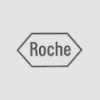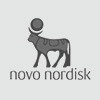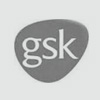Mouse Monoclonal Antibody Development - Phase II
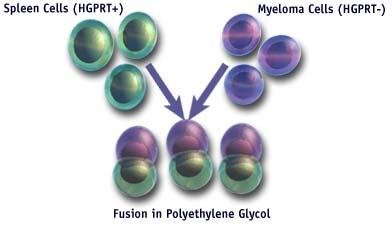 Phase II (8-11 Weeks)
Phase II (8-11 Weeks)This phase involves the creation of the hybridoma cells, where the splenocytes from the mouse which produced the highest titer in Phase I ELISA screening (high titer host) is fused with the myeloma cell line SP2. The myeloma cell line has the genes which confers the ability to multiply indefinitely, while the spleen cells from the selected host contain the genes encoding the antibody against the test antigen. When selected in the special HAT medium (which has hypoxanthine, aminopterin and thymidine) only the hybrid cells are able to survive as the aminopterin in the medium blocks the normal biosynthetic pathway for nucleotides. The unfused myeloma cells are HGPRT gene deficient and are unable to produce the nucleotides by the salvage pathway, while the normal spleen cells can, but cannot survive definitely. So only the fused hybrid cells survive in the medium. The next steps in this phase involve the screening of the right antibody producing hybridoma cells. In order to detect the primary interraction of the antibody produced against the test antigen we use indirect ELISA and use the antibody titers to select the wells that produce the antibody.
| Steps | Procedure |
| 1 | Fuse splenocytes from high titer host with the SP2 myeloma cell line. |
| 2 | Examine plates every 1-3 days for colony growth. |
| 3 | The hybrid cells are fed with fresh medium after 7 days. At this stage there is no need to add aminopterin . |
| 4 | Screen the colonies to identify the positive antibody producing hybrids. We test the primary interaction, antibody binding to the antigen by ELISA to identify the wells that contain the clones for further expansion and freezing. |
| 5 | If no positive clones are obtained after first fusion, then the remaining animals receive second booster injections for a second round of fusion. |
| 6 | At this stage the screening assay or antigen may require additional optimization. |
Start your project now by selecting the BUY button below.

